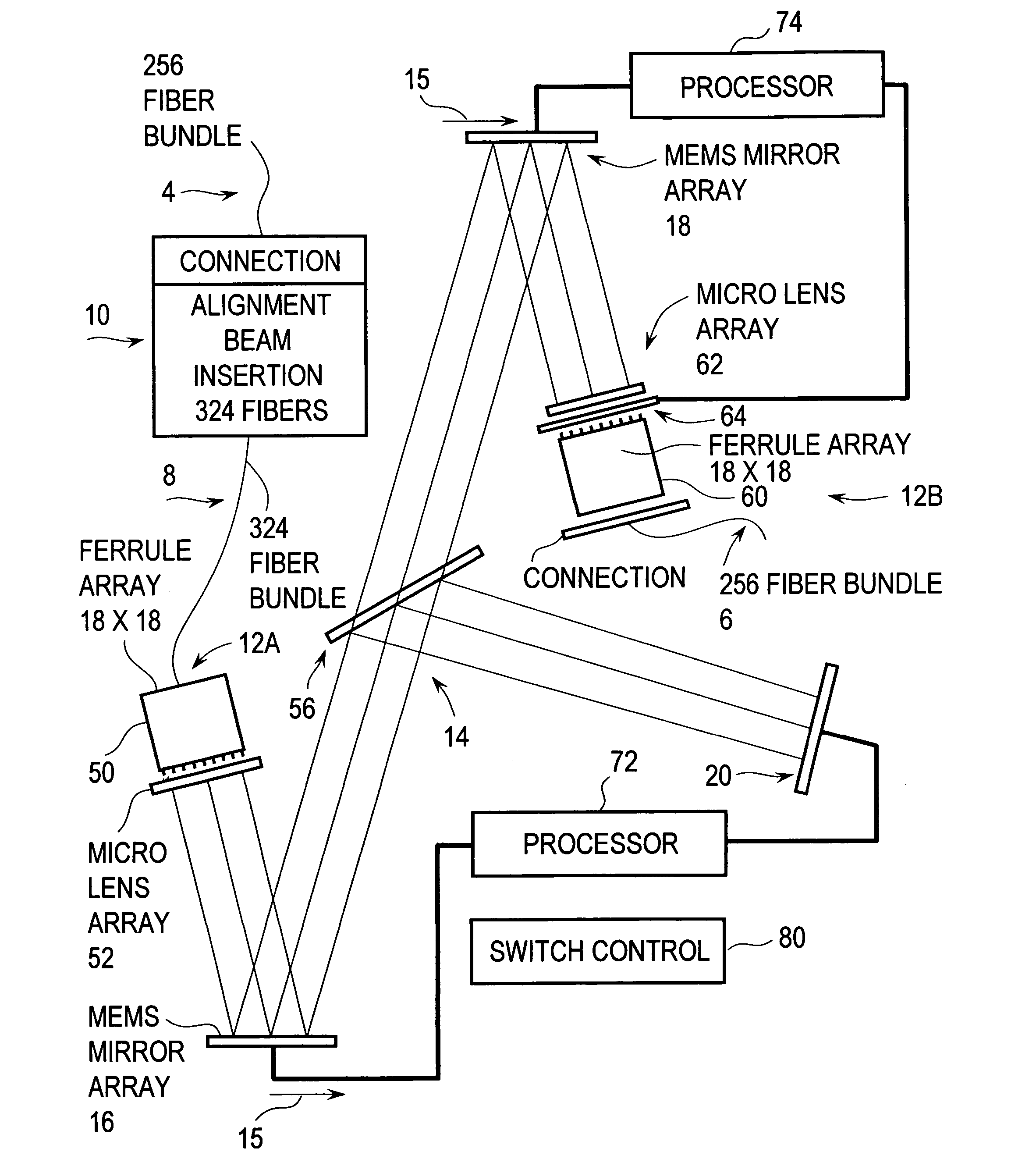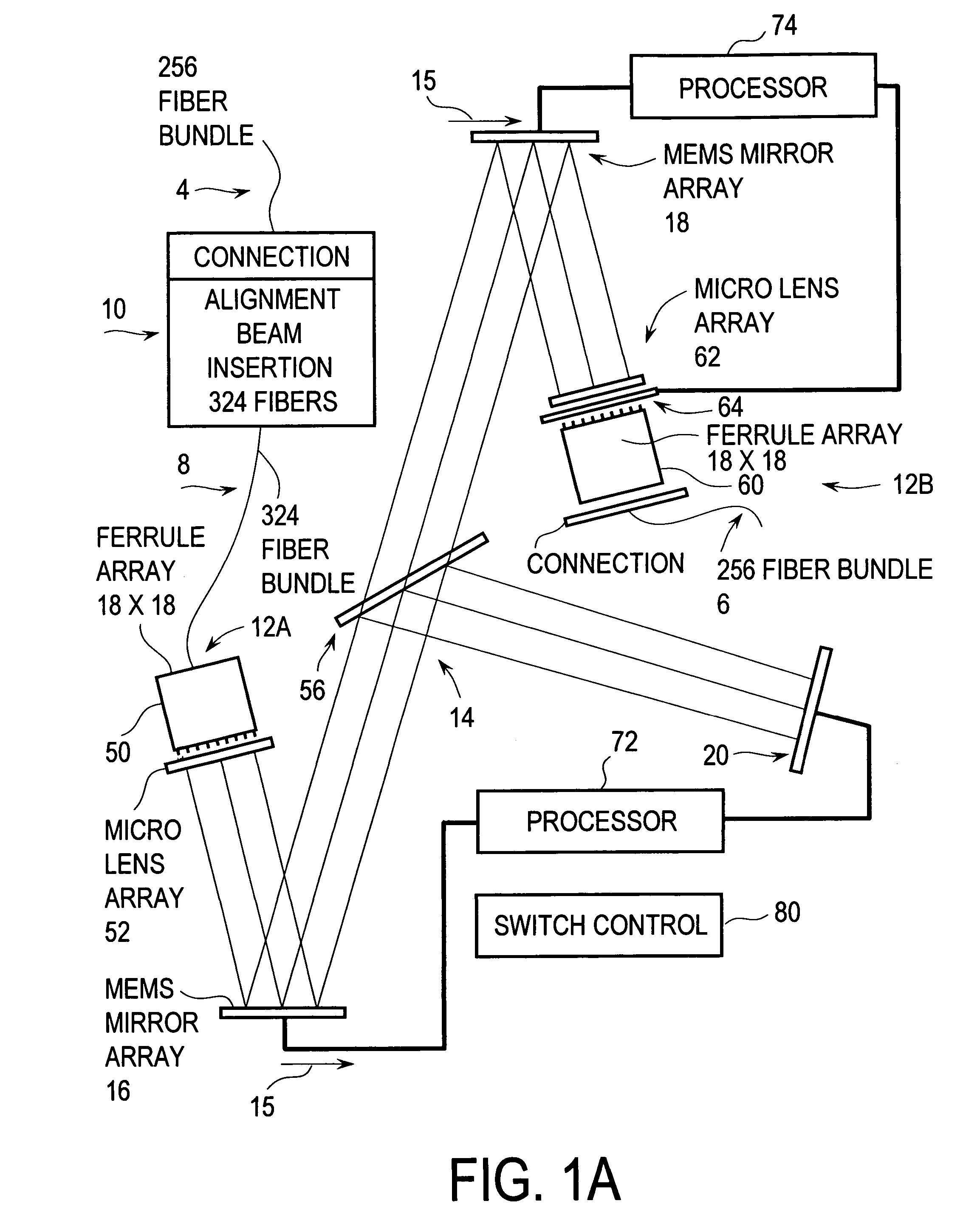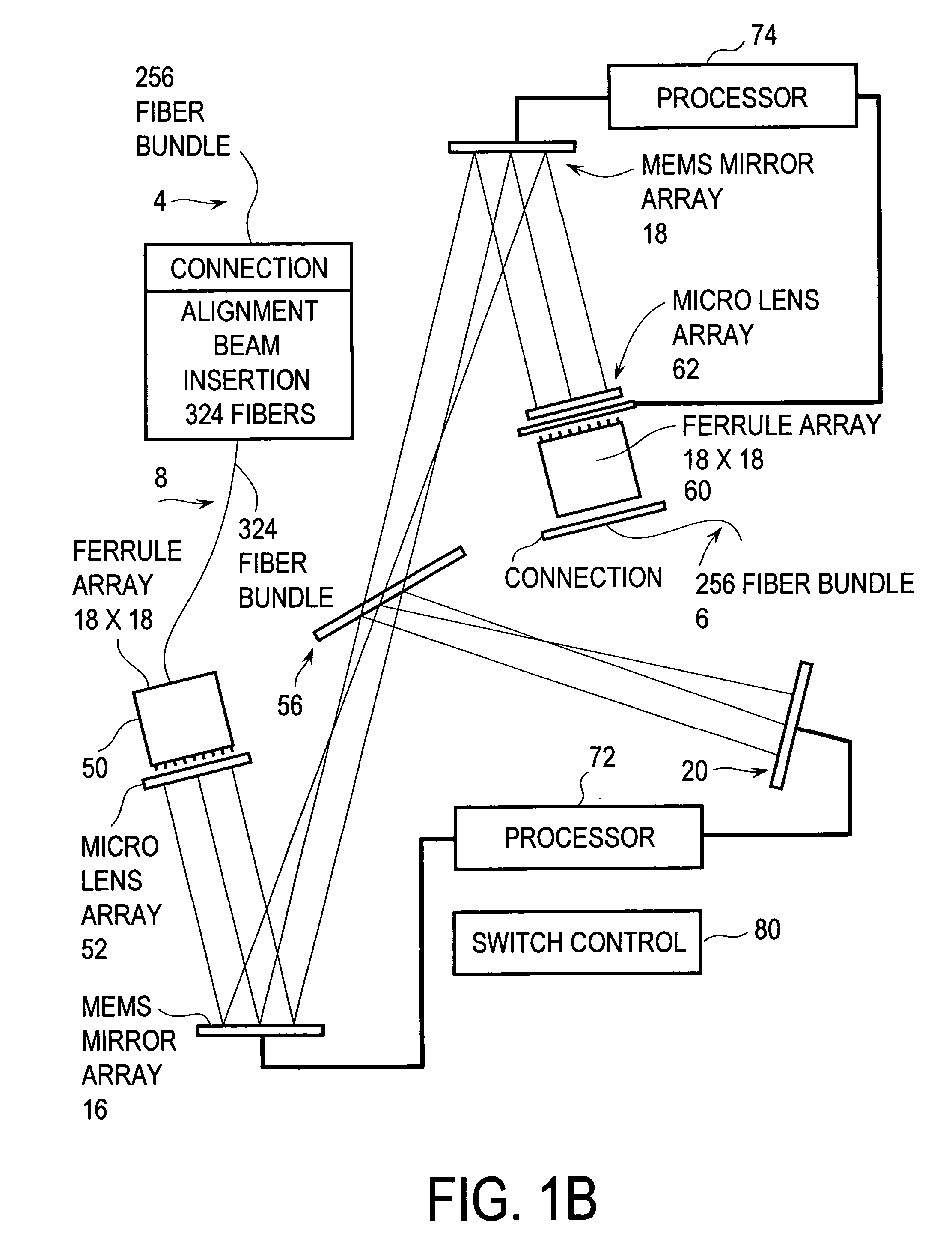Porous silicon filter for wavelength multiplexing or de-multiplexing
a technology of porous silicon and optical filters, applied in the field of optical filters, can solve the problems of requiring significant maintenance and easy failure of switches
- Summary
- Abstract
- Description
- Claims
- Application Information
AI Technical Summary
Benefits of technology
Problems solved by technology
Method used
Image
Examples
Embodiment Construction
[0039]FIGS. 1A and 1B show an optical switch 2 for switching optical communication beams carried by the fibers of a first 256 (16×16) optical fiber bundle 4 into the fibers of a second 256 optical fiber bundle 6. The beams in any fiber of bundle 4 can be switched into any fiber of bundle 6. Bundles 4 and 6 may be a part of a large nation-wide communication system such as the one discussed in the section of this description entitled “Application in a Nation Scale Fiber Optic Network” in which each fiber is carrying information at a large number of separate frequencies. Or the bundles 4 and 6 may be a part of a multiplex or de-multiplex operation, such as an add-drop station, in which single or a small number of frequencies are carried by the individual fibers. The switch is divided into four basic portions: (1) an alignment beam insertion portion 10, (2) a beam input portion 12A, (3) a beam directing portion 14, and (4) a beam receiving portion 12B.
Alignment Beam Insertion Portion
[00...
PUM
| Property | Measurement | Unit |
|---|---|---|
| current | aaaaa | aaaaa |
| diameters | aaaaa | aaaaa |
| distance | aaaaa | aaaaa |
Abstract
Description
Claims
Application Information
 Login to View More
Login to View More - R&D
- Intellectual Property
- Life Sciences
- Materials
- Tech Scout
- Unparalleled Data Quality
- Higher Quality Content
- 60% Fewer Hallucinations
Browse by: Latest US Patents, China's latest patents, Technical Efficacy Thesaurus, Application Domain, Technology Topic, Popular Technical Reports.
© 2025 PatSnap. All rights reserved.Legal|Privacy policy|Modern Slavery Act Transparency Statement|Sitemap|About US| Contact US: help@patsnap.com



